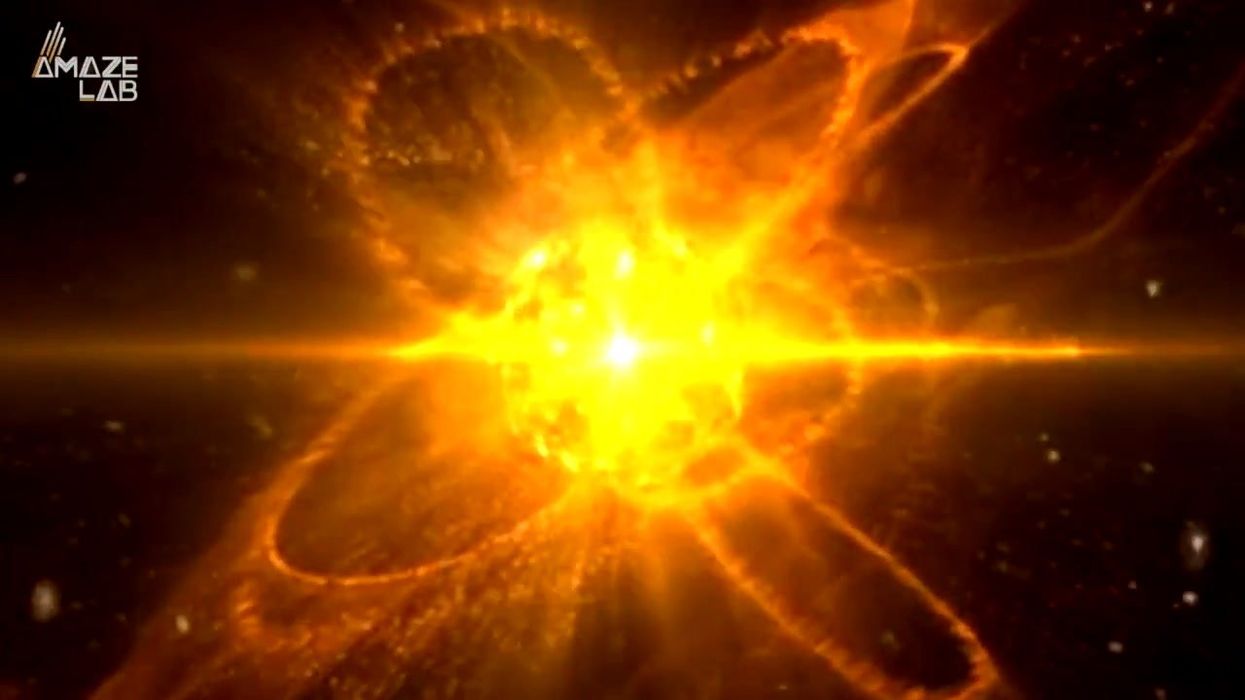Becca Monaghan
May 04, 2023
Astronomers Capture the Moment a Star Expands and Eats One of Its …
content.jwplatform.com
Astronomers have captured a dying star swallowing a Jupiter-sized planet for the very first time.
When a star runs out of fuel, it grows a million times in size, engulfing anything in the way of its expanding material.
While scientists have previously witnessed the before and after of stars consuming planets, they have never caught one in action – until now.
According to scientists from the Massachusetts Institute of Technology, Harvard University and the California Institute of Technology, this marks a world first.
Sign up for our free Indy100 weekly newsletter
Ironically, the team didn't set out to find a star swallowing a planet. Instead, they were analysing Zwicky Transient Facility data that delved into optical and infrared wavelengths in the sky.
Their newfound discovery was entirely unexpected.
The event took was said to take place in our galaxy, around 12,000 light-years away. That's where astronomers caught an outburst of a star that became 100 times brighter over ten days before fading away.
It was followed by a cold, long signal which scientists agreed to be a star engulfing what scientists assume to be a hot, Jupiter-sized planet.
Earth is expected to experience a similar fate, though not for another 5 billion years.
"We are seeing the future of the Earth," astrophysicist Kishalay De said from MIT's Kavli Institute for Astrophysics and Space Research.
"If some other civilisation was observing us from 10,000 light-years away while the Sun was engulfing the Earth, they would see the Sun suddenly brighten as it ejects some material, then form dust around it, before settling back to what it was."
Have your say in our news democracy. Click the upvote icon at the top of the page to help raise this article through the indy100 rankings.
Top 100
The Conversation (0)














